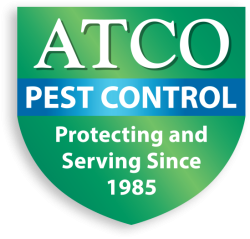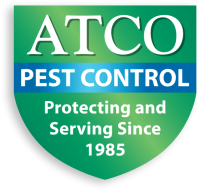What is Sustainable Pest Management (SPM)?

Sustainable Pest Management (SPM) is becoming an increasingly important topic in the world of urban and structural pest control, addressing the need for approaches that are not only effective but also environmentally friendly and socially responsible.
At its core, SPM is an approach to pest control that holds maintaining healthy and resilient ecosystems, communities, and landscapes at the highest level of importance. It starts by examining and addressing where pest pressures, ecosystem health, and human wellbeing collide, building on the concepts of Integrated Pest Management (IPM) – which has been around since the 1970s – with further focus on sustainability and impact across the “Three Pillars” of SPM.
Three Pillars of SPM
Human Health and Social Equity – Long and short-term consideration of impact on local communities and health
Environmental Protections – Links to broader environmental issues like water conservation, biodiversity conservation, soil health, and climate impact
Economic Vitality – Long and short-term consideration of economic benefits and impact, for all parties involved
What does SPM look like for homes and structures?
In daily practice, SPM’s focus is on the long-term monitoring and prevention of pests, utilizing a combination of techniques to minimize or eliminate the need for pesticides.
SPM programs are based primarily on thorough site-specific inspection and reporting, with a heavy focus on preventing human and ecological impact. Proper inspection gives providers the information needed to influence only the targeted pest at the proper time, taking structural considerations, wildlife, pest life cycles, weather patterns, and other localized factors into account. Oftentimes, pest issues will only require mechanical controls such as trapping, vacuuming, steam, heat, or exclusion practices – others may require additional habitat manipulation or biological controls. Looking to these methods first not only reduces reliance on pesticides but helps to support a healthy ecosystem by promoting biodiversity and reducing the impact on beneficial organisms.
Pesticides are used only as a last resort, and in a manner that minimizes risks to human health, beneficial and non-target organisms, and the environment at large. At ATCO, we focus on the use of eco-friendly, low-toxicity and non-toxic pesticides when we’ve exhausted other options and chemical control is necessary.
SPM in California
California’s Department of Pesticide Regulation recently published a roadmap for accelerating SPM in California, with two main goals: eliminate the use of “Priority Pesticides” and adopt Sustainable Pest Management as the de facto pest management system in California by 2050. The roadmap can be found here.
While this paper was released in January 2023, ATCO Pest Control has always been ahead of the curve, along with a select few other thought leaders in the industry. As an innovator committed to Sustainable Pest Management practices in all our work, ATCO reached CA’s stated main goals before “SPM” was coined as a term. In addition, we are an early EcoWise Certified pest control provider – a 3rd party group funded by the California State Water Resources Control Board focused on promoting the least-hazardous effective pest control options – and won a 2009 award from the CA Department of Pesticide Regulation for our inventive, eco-friendly approach to pest control at the Marin County Civic Center.
In addition to pest control, SPM intersects with practices such as water conservation, energy efficiency, and waste reduction, which contribute to the overall sustainability of an ecosystem. By implementing and encouraging these practices across our business, ATCO helps to support healthier and more resilient local ecosystems, communities, and landscapes. In coming months, we will continue to post information regarding SMP and our furtherance of this concept in our everyday practice and decision-making as a pest management company. Please look out for more information regarding our program progress on our blog!



